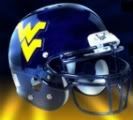Post by elp525 on Sept 28, 2011 5:01:11 GMT -5
September 27, 2011
By Mitch Vingle
The Charleston Gazette
IN THE AREA of conference realignment, West Virginia University is sitting in a precarious position. Fans are searching for every bit of news, hoping their school finds a spot in a power conference.
(The latest rumor was SEC officials took a straw vote that came out in favor of the Mountaineers. "I don't know if that's true or not," said WVU athletic director Oliver Luck. "I can't confirm or deny it. I haven't talked to anyone about it.")
Anyway, in the midst of it all is a man who will be seriously affected by West Virginia's ultimate landing: basketball coach Bob Huggins. Strangely, his strong voice has been silent in regard to the subject.
On Tuesday, though, Huggins was on the road recruiting during this contact period and took a few moments during a layoff in Atlanta to speak to the subject.
"The truth is, no one knows what's going on," Huggins said. "There was that rumor about the SEC straw vote, but nobody at our university knows anything about it."
Huggins, however, continues to recruit despite the uncertainty. Do the recruits ask about WVU's position and the Big East?
"They all ask," he said. "I tell them to remember that Pitt and Syracuse are bound to our league for two, and maybe three, more years. So it doesn't really affect the kids we're recruiting."
Huggins said he believes the Mountaineers can still find a suitable home.
"I think the ACC is a possibility," he said. "I think staying where we are is a possibility. I think the Big 12 is a possibility. I think the SEC is a possibility. Or a variation thereof.
"We're not out of the discussion of anything, contrary to what some people would have you believe. The only thing we're out of is being invited to the Big Ten. All others are possibilities."
Huggins correctly pointed out that "not a lot happened that everybody thought," like Rutgers and Connecticut to the ACC. (Yet.) He said, however, none of this is surprising.
"I honestly thought at some point in time it would go this way, to power or super conferences," said the coach. "It started with Boston College, Virginia Tech and Miami [to the ACC].
"The problem with all this is, quite frankly, you run out of [schools] to add. That's because it's all football-driven. One hundred percent football-driven. The reason is, the schools keep the football money. Zero is given to the NCAA. We basically fund the NCAA."
By "we" he means college basketball, and he's correct. According to the NCAA itself, "rights fees have accounted for about 85 percent of all NCAA revenue. In 2009-10, the media agreements constituted 86 percent of NCAA revenue."
In other words, the NCAA basketball tournament media agreements. The Wall Street Journal has reported the tournament is second only to the Super Bowl in terms of advertising sales for a postseason event.
Currently, the NCAA has a $10.8 billion, 14-year television contract in place. Much of that is doled out to conferences, which then split the money as voted on by members.
The NCAA, however, also takes its chunk. As do its employees. A Sept. 10, 2010, article in The Chronicle of Higher Education claimed the NCAA "spent nearly $6 million to compensate 14 of its highest ranking executives, according to federal tax documents."
Huggins has said schools should cut out the NCAA in regard to basketball money. He's suggested criteria should be crafted and, in effect, a hoops BCS circle formed. Take the top 64 to 72 schools, play an upper-tier post-season tournament and keep the $10.8 billion. Allow the lower-tier schools to hold a second tournament.
"That's the reason basketball doesn't have any juice," Huggins said. "They take all the money."
The NCAA has taken note of Huggins' stance in the past. It posted an article on its Web site saying "about 60 percent of NCAA revenue [that's all revenue, not just money from rights agreement] is distributed to Division I members."
It said 40 percent of NCAA expenditures sustain championships, programs and services.
"West Virginia men's basketball coach Bob Huggins indirectly highlighted these expenditures in February," says the article, "when he claimed the NCAA annually 'steals' more than $200 million from Association resources. [He also zinged conference offices for how they use their 60 percent distribution.]
"Huggins' choice of words may have been overheated, but his observations point to philosophical differences within the membership. Should the institutions that are perceived to generate the money be permitted to keep more of it? Also, what level of NCAA programming is appropriate?"
It then points out the NCAA Executive Committee sets the money allocation and the college presidents approve it. In other words, talk to your boss, pal.
Huggins, however, has a grasp of why WVU and, certainly, the Big East might be in their current precarious situations. By allowing the hoops money to flow to the NCAA, rather than the schools creating the buzz and, in turn, advertising dollars, those with strong basketball programs aren't valued to the fullest.
Check Kansas. Check WVU. Check the entire Big East. They are all teetering, while the high-ranking NCAA officials merrily cash their large salary checks.
In the end, perhaps WVU will land in the SEC. Perhaps it will be fine for the Mountaineer nation.
But it might just be time the school's president, and others around the country, listen to Huggins and examine the current hoops/NCAA setup.
Might be too late to help WVU and the Big East, but it's something worth examining.
By Mitch Vingle
The Charleston Gazette
IN THE AREA of conference realignment, West Virginia University is sitting in a precarious position. Fans are searching for every bit of news, hoping their school finds a spot in a power conference.
(The latest rumor was SEC officials took a straw vote that came out in favor of the Mountaineers. "I don't know if that's true or not," said WVU athletic director Oliver Luck. "I can't confirm or deny it. I haven't talked to anyone about it.")
Anyway, in the midst of it all is a man who will be seriously affected by West Virginia's ultimate landing: basketball coach Bob Huggins. Strangely, his strong voice has been silent in regard to the subject.
On Tuesday, though, Huggins was on the road recruiting during this contact period and took a few moments during a layoff in Atlanta to speak to the subject.
"The truth is, no one knows what's going on," Huggins said. "There was that rumor about the SEC straw vote, but nobody at our university knows anything about it."
Huggins, however, continues to recruit despite the uncertainty. Do the recruits ask about WVU's position and the Big East?
"They all ask," he said. "I tell them to remember that Pitt and Syracuse are bound to our league for two, and maybe three, more years. So it doesn't really affect the kids we're recruiting."
Huggins said he believes the Mountaineers can still find a suitable home.
"I think the ACC is a possibility," he said. "I think staying where we are is a possibility. I think the Big 12 is a possibility. I think the SEC is a possibility. Or a variation thereof.
"We're not out of the discussion of anything, contrary to what some people would have you believe. The only thing we're out of is being invited to the Big Ten. All others are possibilities."
Huggins correctly pointed out that "not a lot happened that everybody thought," like Rutgers and Connecticut to the ACC. (Yet.) He said, however, none of this is surprising.
"I honestly thought at some point in time it would go this way, to power or super conferences," said the coach. "It started with Boston College, Virginia Tech and Miami [to the ACC].
"The problem with all this is, quite frankly, you run out of [schools] to add. That's because it's all football-driven. One hundred percent football-driven. The reason is, the schools keep the football money. Zero is given to the NCAA. We basically fund the NCAA."
By "we" he means college basketball, and he's correct. According to the NCAA itself, "rights fees have accounted for about 85 percent of all NCAA revenue. In 2009-10, the media agreements constituted 86 percent of NCAA revenue."
In other words, the NCAA basketball tournament media agreements. The Wall Street Journal has reported the tournament is second only to the Super Bowl in terms of advertising sales for a postseason event.
Currently, the NCAA has a $10.8 billion, 14-year television contract in place. Much of that is doled out to conferences, which then split the money as voted on by members.
The NCAA, however, also takes its chunk. As do its employees. A Sept. 10, 2010, article in The Chronicle of Higher Education claimed the NCAA "spent nearly $6 million to compensate 14 of its highest ranking executives, according to federal tax documents."
Huggins has said schools should cut out the NCAA in regard to basketball money. He's suggested criteria should be crafted and, in effect, a hoops BCS circle formed. Take the top 64 to 72 schools, play an upper-tier post-season tournament and keep the $10.8 billion. Allow the lower-tier schools to hold a second tournament.
"That's the reason basketball doesn't have any juice," Huggins said. "They take all the money."
The NCAA has taken note of Huggins' stance in the past. It posted an article on its Web site saying "about 60 percent of NCAA revenue [that's all revenue, not just money from rights agreement] is distributed to Division I members."
It said 40 percent of NCAA expenditures sustain championships, programs and services.
"West Virginia men's basketball coach Bob Huggins indirectly highlighted these expenditures in February," says the article, "when he claimed the NCAA annually 'steals' more than $200 million from Association resources. [He also zinged conference offices for how they use their 60 percent distribution.]
"Huggins' choice of words may have been overheated, but his observations point to philosophical differences within the membership. Should the institutions that are perceived to generate the money be permitted to keep more of it? Also, what level of NCAA programming is appropriate?"
It then points out the NCAA Executive Committee sets the money allocation and the college presidents approve it. In other words, talk to your boss, pal.
Huggins, however, has a grasp of why WVU and, certainly, the Big East might be in their current precarious situations. By allowing the hoops money to flow to the NCAA, rather than the schools creating the buzz and, in turn, advertising dollars, those with strong basketball programs aren't valued to the fullest.
Check Kansas. Check WVU. Check the entire Big East. They are all teetering, while the high-ranking NCAA officials merrily cash their large salary checks.
In the end, perhaps WVU will land in the SEC. Perhaps it will be fine for the Mountaineer nation.
But it might just be time the school's president, and others around the country, listen to Huggins and examine the current hoops/NCAA setup.
Might be too late to help WVU and the Big East, but it's something worth examining.





